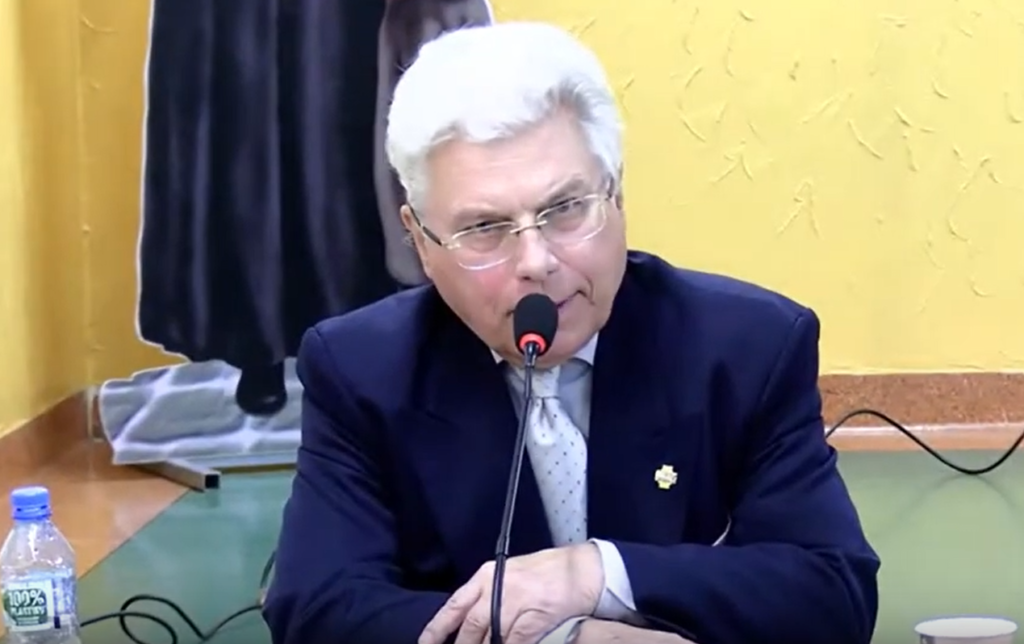
“John Paul’s experience of identity refers to the achievements of generations and centuries of achievements, but also to failures rooted in the nation, which accumulate in the nation. According to the Pope, our soul is in it, although some researchers, recently and even now, ridicule the concept of the soul of the nation in the past or today, they question it, they think that there is no such thing. And yet the Pope said: ‘We live the entire heritage, whose name is Homeland, whose name is Nation. You cannot create history without history'” – Prof. Wiesław Jan Wysocki said during the conference “Called to serve in a foreign land – according to the concepts of John Paul II, August Hlond and Robert Schuman”, which took place on November 4 in Wrocław. This conference was a summary of this year’s edition of the Animators of Poland’s Image in Europe project.
“This soul of the nation is the national culture, so internal and constitutive that it is impossible to understand the nation outside it. As the achievement of many generations, it is the property of the entire nation. It is a hereditary property passed down from generation to generation, with the emphasis: for the common good” – he said, adding that “the word Homeland read in the papal reflections contained in the unique message of “Memory and Identity”, the word Homeland is connected with the reality of the Father”.
“We know to what extent the transmission of spiritual heritage takes place through mothers. Therefore, homeland is a heritage, and at the same time it is a state of possession resulting from this heritage, including land, territory, but even more so the values and spiritual content that constitute on the culture of a given nation” – the historian pointed out.
“John Paul the Great states: ‘The concept of Homeland contains a deep connection between what is spiritual and what is material, between culture and the land. The land taken from the nation by force becomes, as it were, a loud cry towards the spirit of the nation. The spirit of the nation awakens “lives a new life and, in turn, fights for the restoration of its rights to the land” – he quoted the Polish Pope, noting that “for many independent countries, the category of the state was sufficient”. “The lack of statehood and sovereignty meant that for Poles the category of nation as a conscious state of being rooted in heritage was primarily important” – he emphasized.
Prof. Wysocki pointed out that heritage, which is culture, is the basic bond. “The history of many nations proves that they survived without having their own statehood, oppressed, destroyed, exploited, and survived thanks to culture” – he said, citing the Polish, Jewish, Irish and Lithuanian nations as examples.
The Holy Father gave one of the most beautiful testimonies to Polish culture, highlighting its values and power: “I am the son of a nation that has survived the most terrible experiences in history, which was sentenced to death by its neighbors many times, but it remained alive and remained itself. It preserved its own identity, preserved its own sovereignty as a nation, not relying on any other means of power, but only on its own culture, which in this case turned out to be a greater power than those powers. Culture, in its centuries-long continuity, defines the nation, constitutes its spiritual determination, and, being a common good, determines its independence, sovereignty, love for this land. It created a bond between citizens, raised them, regenerated them and enriched them”.
“For the Pope, patriotism meant love for what is native. Love for tradition, history, language, or the same native landscape. It is a love that also includes the works of compatriots and the fruits of their genius” – reminded Prof. Wysocki, pointing here to the presence of a specific historical mysticism. “The Pope sees our sovereignty in patriotism, i.e. in the attitude towards the homeland” – he added.
He quoted the words of Timothy Garton Ash, who in his famous book “Polish Revolution” stated that John Paul II left a nation with awakened pride and a society with a new sense of elementary unity.
AW
